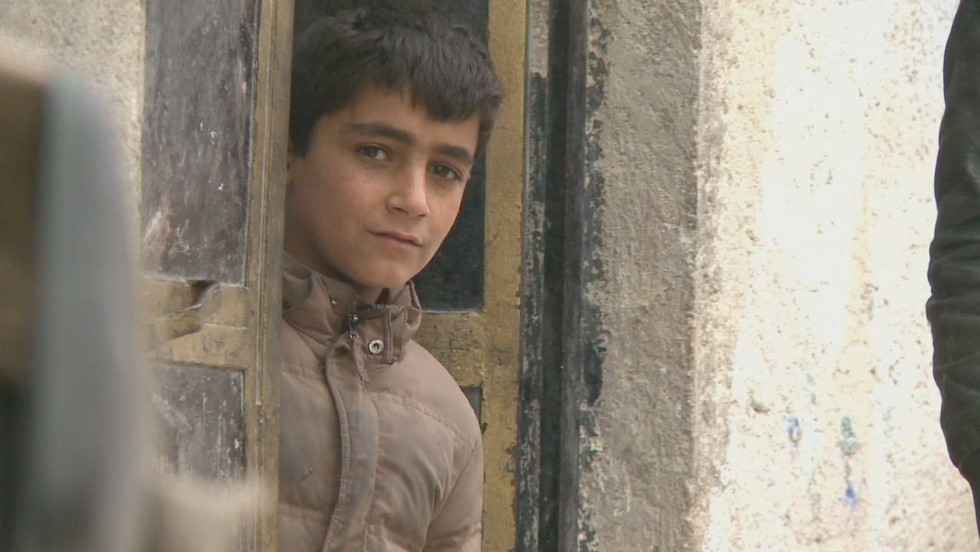Story highlights
- Civilians under siege from ISIS eke out a life in the rubble of Kobani
- ISIS fires gas canisters packed with metal shards on Kurdish civilian areas
- Civilians use cushions to protect themselves from ISIS fire
- Children play in a makeshift graveyard in the devastated city
CNN Senior International correspondent Nick Paton Walsh will be taking your questions about Kobani -- and whatever else you'd like to know -- on Reddit at 11 a.m. ET/4 p.m. GMT.
Kobani, Syria (CNN)Kobani feels haunted by those who are still alive in it, trapped in limbo. It is a place so inhumane that the noise of coalition warplanes above is of strange comfort to those there. The destruction so near complete, the fight is more now for victory alone, not for its spoils.
One salient fact stands out: They have given up on hospitals inside the city. Yes, the lightly wounded are treated by the handful of doctors who remain, but since a huge car bomb near the official border crossing with Turkey obliterated their main hospital, they send the injured straight to the border. Another hospital would just be another possible target for ISIS.
In the past the Kurds battling the militant Islamists for control of the border city have claimed as many as 10,000 civilians remain inside. During our two days there we saw little to justify that large a figure. There are civilians here, but they eke out a life in the rubble, seeking food and fuel as winter looms, and likely number in the low thousands.
There are civilians here who refuse to flee or cannot. Turkey has closed the western crossing point through which many refugees left -- indeed many stand there now, trying to get out, looking at the Turkish soldiers to help. Those inside, however, are besieged increasingly by ISIS from all fronts.
Nothing can protect them from the indiscriminate, constant shelling. ISIS forces routinely use homemade mortars: gas canisters packed with shreds of scrap metal. They rain down on the Kurdish civilian areas, where fighters also mix.
Yousuf, who is 12, lists the friends who have left Kobani. He also shows us what they do to protect themselves when the blasts begin. There is no shelter, just a room in their house where their uncle told them to run. They show us the cushions they use to hide. Some line the walls, others they put on top of them. Were this a game, it would not have any rules.
'She was 7 years old. She was so beautiful'
Ali is 60 years old and a week earlier lost one of his six daughters. She was 7 years old.
He walks us to the spot where the mortar hit her. "Three to four mortars fell near us. The first mortar we escaped from. The second mortar we escaped from. The third fell on us." He is interrupted by the thud of another mortar landing some streets away. "My daughter was 7 years old; 7 years old -- and she died. God bless help us."
They could not flee; the 150 sheep he tends are their livelihood, as is the family car they did not want to abandon. The animals stand helpless, too, near the spot where Ali's daughter died.
Ali and his family moved here when ISIS attacked their village, 15 kilometers from Kobani. Ali must live with these decisions. The day before, he sat at his daughter's grave for a half-hour. He kisses her photograph.
"She was 7 years old. She was so beautiful. Small. People who saw her felt the need to lift her up and down in play."
The graveyard on the city's outskirts also is a somber scene. It, too, is makeshift. Rubble -- bits of cinder block -- are used as headstones.
Next to the fresh graves lies a long trench -- ready for the next wave of dead. It, too, is the scene of children playing, clambering around the trench. The conflict's brutality may be beyond their reach, but the fight for Kobani will decide what kind of life they could be left with if they survive.




